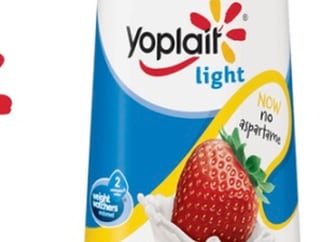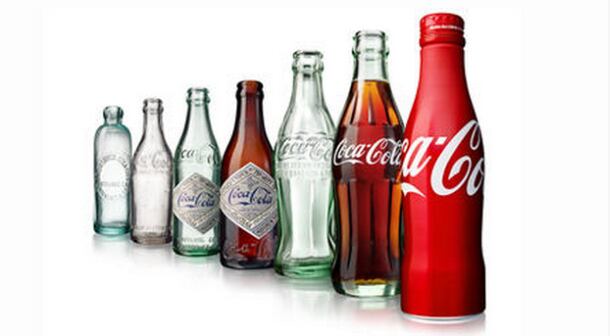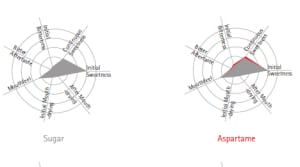While aspartame - which is used in Diet Coke, Diet Pepsi and many other leading brands - has been deemed safe by all major scientific and regulatory bodies based on analysis of 100+ toxicological and clinical studies, it has repeatedly come under fire from activists and consumer groups such as the Center for Science in the Public Interest (CSPI), which urges shoppers to avoid the sweetener over concerns it may be carcinogenic (click HERE).
Meanwhile, several retailers including Whole Foods feature aspartame on their lists of ‘unacceptable ingredients’ (click HERE); General Mills has just removed it from Yoplait Light (click HERE); and Coke and Pepsi have both launched new lower-calorie colas that use stevia instead of aspartame owing to its more ‘natural’ credentials.
FDA: ‘You have not identified any scientific data… that would cause the agency to alter its conclusions’
However, the FDA says it has been monitoring the scientific data on aspartame since the 1970s and has not seen anything to change its position that it is “safe for the general population except for individuals with phenylketonuria [warning labels about which are mandatory on all products containing the sweetener]”.

In a letter published on October 24 responding to a citizen’s petitions filed by K. Paul Stoller MD, FACHM, the FDA said that Dr Stoller had not provided any evidence to show that current intakes of aspartame exceed the ADI (acceptable daily intake). It also challenged his interpretation of a 2006 study by the European Ramazzini Foundation (ERF) and said it had not received data it had repeatedly requested from the ERF about studies conducted in 2007 and 2010.
It concluded: “Despite your many assertions, you have not identified any scientific data or other information that would cause the agency to alter its conclusions about the safety of aspartame.”
Anecdotal accounts of adverse effects of aspartame are not supported by scientific evidence
In a letter responding to fellow petitioner Betty Martini, founder of Mission Possible World Health International, “which is committed to removing the deadly chemical aspartame from our food”, the FDA said that “anecdotal accounts of adverse effects of aspartame [cited in her petition] … are not supported by scientific evidence”.
It also noted that it had conducted an analysis of 195 reports of aspartame-related adverse events between Jan 2004 and Dec 2013 and had “not identified any causal link between aspartame consumption and the reported adverse events”. It was also unaware of “an established mechanism that would explain how aspartame is associated with the reported adverse events”.
Finally, it disputed Martini’s claims that methanol from aspartame caused organ, tissue and neurological damage, arguing that “methanol in aspartame or in fruits and juices does not accumulate in the body and is easily metabolized” and that in any case, the ADI for aspartame resulted in methanol exposure levels significantly below those outlined in rat studies cited by Martini.
Dr Ihab Bishay, senior director, business development and application innovation at Ajinomoto North America - a leading supplier of aspartame - told us that the FDA letters spoke for themselves, adding: "Aspartame safety has been reviewed by many food authorities many different times, all with the same positive conclusion. It’s a simple, sweet ingredient that is digested to the very same components found in the foods we eat each day."
National Cancer Institute: Aspartame does not increase a person's risk of developing cancer
The FDA letters were released shortly before a study was published in the Journal of Nutrition in which researchers from the American Cancer Society found that artificially and sugar-sweetened carbonated beverage consumption is not associated with increased risk of lymphoid neoplasms in older men and women.

"The study supports the decades of research that have continued to find that aspartame is safe for use in foods and beverages," said Haley Stevens, Ph.D., president of the Calorie Control Council. "It also supports the conclusions of the National Cancer Institute (NCI) which have determined that aspartame does not increase a person's risk of developing cancer."
According to the NCI: "There is no clear evidence that the artificial sweeteners available commercially in the United States are associated with cancer risk in humans."
Petitioner: FDA response is ‘all subterfuge’
However, Dr Stoller, who is chief of hyperbaric medicine at the Amen Clinics, said the FDA’s dismissal of his petition was “all subterfuge”.
Commenting on the FDA’s observation that it had not received data enabling it to assess the Ramazzini studies properly, he said: “They want me to spoon feed them everything so they can take five years to get back to me again... really?”

He added: “It would be like reporting a crime to the police and they want you to solve the case for them... do all the leg work, make a citizen's arrest and provide all the evidence before they lift a finger. Is that how it is supposed to work?”
CSPI: The FDA made the wrong call
The CSPI also refused to accept the FDA's interpretation of the data on aspartame. Senior scientist Lisa Y. Lefferts, MSPH, told FoodNavigator-USA: "The FDA made the wrong call."
She added: "In CSPI's view, aspartame should be banned, because of the evidence that it causes cancer in animals, and thus possibly or probably causes cancer in people... The independently conducted studies which found that aspartame causes cancer in mice and rats were far more sensitive and robust than the negative industry studies.
As for the data that the FDA cites to support the safety of aspartame, she said: "FDA cites several pieces of thoroughly unconvincing evidence" including "a series of negative transgenic mouse assays that the US National Toxicology Program no longer considers reliable for cancer evaluation screening" and "an epidemiology study by Lim et al that suffered from major limitations and was worthless for detecting effects of exposures beginning early in life and following consumption over the lifetime... [as] aspartame was not approved until the subjects were in their late 30's to 50's, few of the subjects drank large amounts of diet soda, and the subjects were only followed for five years."
Aspartame: An ingredient ‘ awash in negative press’
From a consumer perspective, meanwhile, aspartame seems to get a bad press regardless of the science, Datamonitor Consumer innovation insights director Tom Vierhile told us earlier this year.
“This is an area of intense controversy and there seems to be a gap between perception and reality. Perhaps because it is an older sweetener that has been on the market longer, aspartame may have attracted more of a negative health perception than sucralose.”
Jean Ban, executive vice president at branding and marketing agency CBD Marketing, added: "When a major brand like Yoplait is practically screaming ‘Now Aspartame FREE’ and linking that to the claim ‘Better Than Ever!’ it’s even more bad news for an ingredient already awash in negative press."
Click HERE to read Dr Stoller’s citizen’s petition and click HERE to read Dr Martini’s petition
